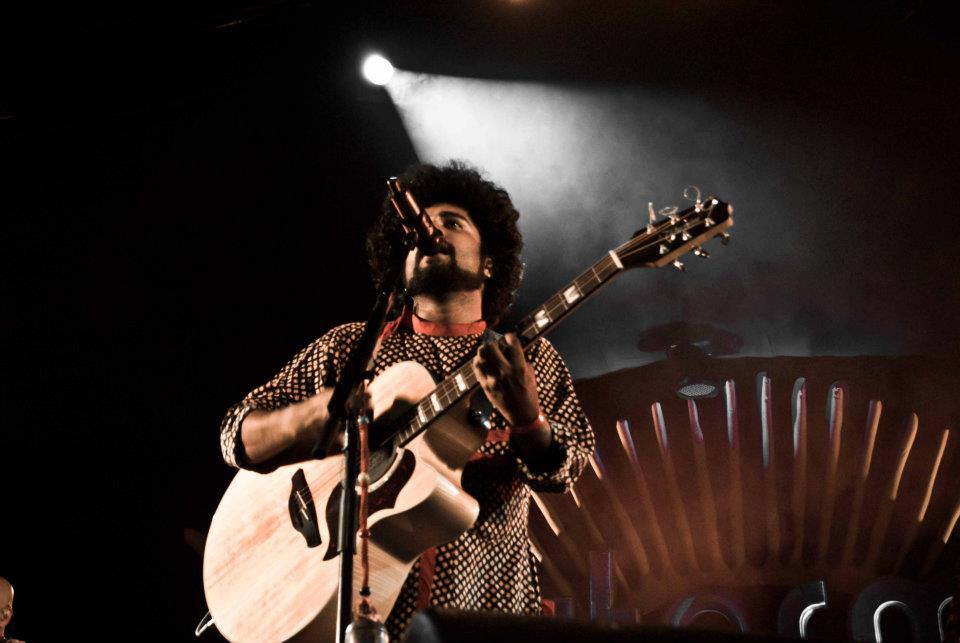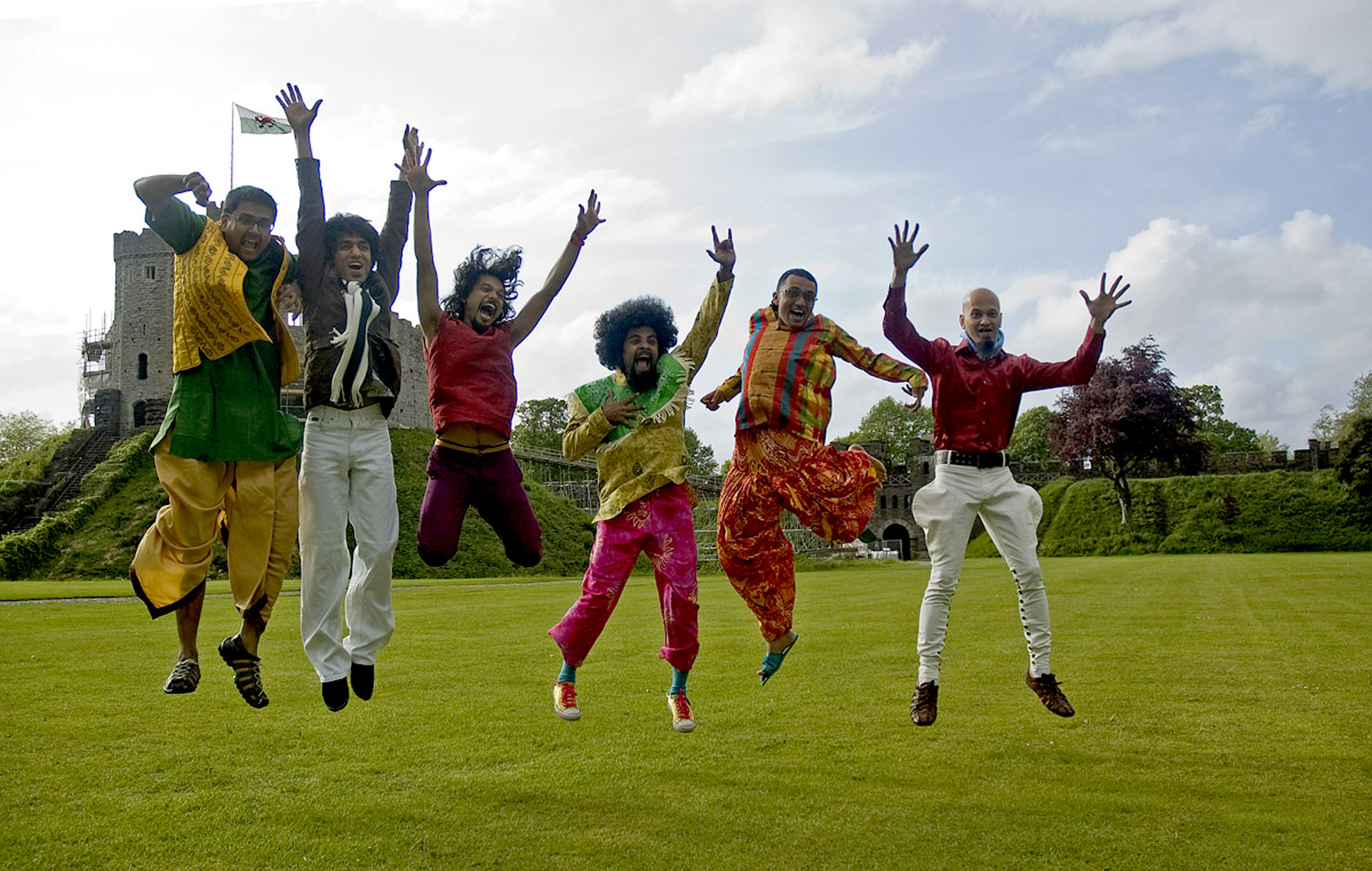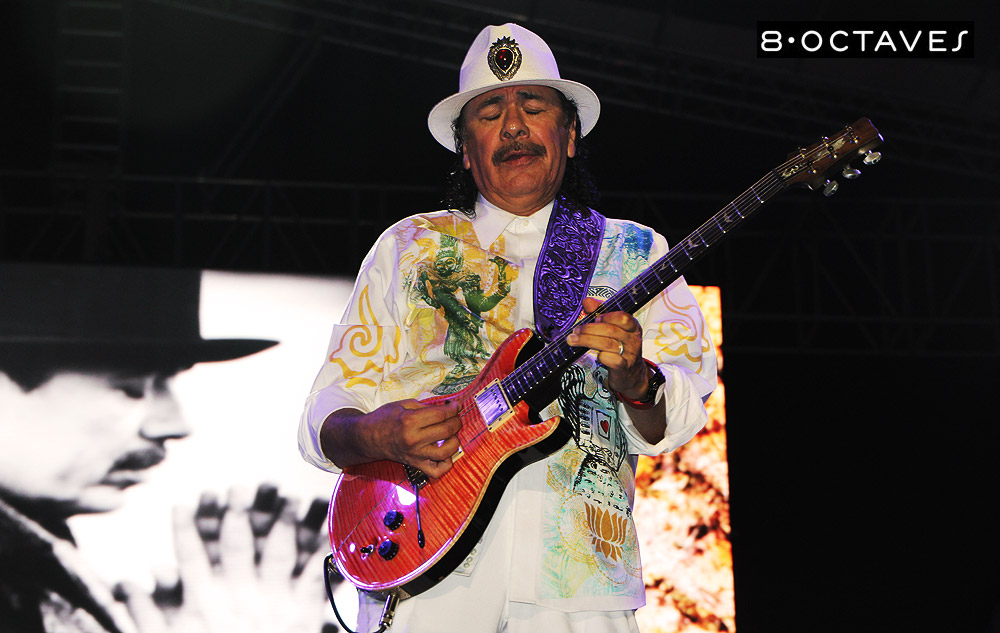Where and how did your band begin?
Jishnu: More relevant than how we began is how we’re still together. There are a lot of reasons why it may seem that a band is together: album launches, overseas tours and appreciative mail from fans. But the real reason a band sticks together (or does not) is the songs it writes (or sometimes, does not write). We have been able to find that connect with each other in the form of the songs we’ve written over the years. I hope we continue to stay productive, honest and uncompromising in our approach.
Sanjeev: As for the origins, the band was born in Mysore, at a college of arts called CAVA. Vasu met Pavan and they started the band they would take seriously only many years later, after education and career were taken care of. That was when the current line-up got together and the band shifted base to Bangalore. Good things started happening to the band, and one thing led to another. It’s probably a combination of good karma and good luck. Our eponymous debut came out on Virgin Music in 2009, we were a part of the British Council sponsored Soundpad compilation, a music video featuring Shubha Mudgal and being on The Dewarists, one of the most wonderful shows on Indian TV. We’ve been fortunate.
How would you describe your sound?
Jishnu: I would describe the sound of a young India: one that respects its roots, but questions the norms. In crafting our sound we frequently find our roots nourishing us in beautiful ways. When we bring in influences from around the world, the sound evolves, just like cultures evolve around the world.
Varun: But on a basic level, it is just six musicians, who share a great chemistry, letting their influences come together to create something that excites everyone together. That is our creative spark.
How do you go about composing music? What inspires you?
Varun: There are no real rules that govern how our music comes into being. It is quite unpredictable in how it happens. To be honest we find that creativity chooses you, and not the other way around. It starts with an idea that someone brings in, could be a riff, a beat, a melody or even a concept. When everyone shares that energy in the jam room, a song is born.
As for what inspires us, it is in being open. Open to letting the world around you affect how you feel. Open to letting it change the way you look at life. Then, you bring that openness together with your ability to express yourself musically. That in short is the way Swarathma writes its music.
Your musical influences?
Jishnu: The Swarathma list of influences is like a cross section of a music store. It is fashionable for bands to say, “We have diverse influences”, but in our case it fits better if we say, “We cannot stand each others’ iPods while on tour”. Varun and I have grown up listening to the conventional urban mish-mash of sounds, from staple-growing-up-pop music to alternative rock to metal. Montry used to play drums for hard rock bands until he met Vasu who has a background in theatre and a penchant for Indian folk music as well as rock and world music. Pavan and Sanjeev have a more classical bend of mind, having been exposed to the basics of Carnatic classical music. But the most important thing is that we are open to each other’s influences. So when someone says, “Hey check this song out, I’ve really been tripping on it”, we will listen to it. And more often than not, find something that appeals to each of us, individually.
How do you manage work and music?
Varun: The best part about our band is that Swarathma is everyone’s first priority. Everyone in the band has either given up a full-time career or consciously decided to eschew it. Vasu could have been a top-notch filmmaker, Pavan could have made a career in art and fashion photography, Montry could have continued his flourishing career in advertising and Sanjeev could have risen in his technology-focused company. But each of us decided, in our own way, to give all of that up and focus on Swarathma.
Each of us has an independent freelance of consulting projects on the side to supplement income, but if there is a gig on a Wednesday afternoon, there is nobody who will back out because their boss will not let them go.
How did the Dewarists happen? What was your most special moment on the show?
Vasu: It is interesting how our journey began. We played a show at Hard Rock Café, Mumbai – it was made memorable for the wrong reasons. The power failed mid-way through the set, but we didn’t stop. We continued playing, and soon we had the audience singing along a capella in the pitch-dark venue lit only by cell phone screens. Present in that show were people who were scouting for talent to showcase on The Dewarists and they contacted our management soon after.
The experience itself was magical. One of the special moments during the shoot was the jam session we had in the resort in Mysore where we shot much of the episode. There was a beautiful circular stage at the centre of an amphitheatre. Huge globe lanterns hung from the sky. And Swarathma and Shubhaji came together to create music. I had a new approach I wanted to try, we played three soundscapes, each unrelated to the other. But ones that got us into a different mood, one that caused us to create the song ‘Duur Kinara’.
Pavan: The other memorable moment was when Shubhaji surprised us all with a couple of lines she sang in Kannada, without us expecting it! She had the Hindi lines translated and read them off her phone while doing a vocal take in the makeshift studio set up in the resort room. We all looked at her in surprise, most of all Vasu whose ‘jaw dropped to his ankles’ in Shubhaji’s words. It was delightful to be around someone like Shubhaji, who makes you forget that she is one of the doyens of Indian classical music, and lets you be yourself.

What is your philosophy on music?
Vasu: Music is there in all of us, even if you’re not the kind who can express it. That is why music appeals to us all. As a musician I convey my feelings using the language of music. That is my personal philosophy on music.
As a band, we try to create music that we believe will make the listener think about what we’re saying. We’re not the kinds who will tell you what we think is right or wrong, that’s not what we’re about. But we use the language of music to talk about the issues that make us feel the emotions we go through. Music can draw your attention to things you might have left unnoticed.
Montry: Another thing we have learnt about music is that it is universal. Though we have tried to bind music within structures of scales and syntax, it still is at its best when gloriously free-spirited. It is the same reason why an audience in Morocco who have no idea of who we are, where we are from or what language we’re singing in, will still groove to our music.
What is important to you when you are on stage?
Jishnu: There is a theory I have about performers on stage. As an audience, you look up to the stage, waiting to be entertained. As a performer, it is your duty, and privilege to create that atmosphere. Sometimes, things don’t go well on stage: technical issues or glitches in the performance could mar your mood. The moment you let that get you down, you draw out the energy from the crowd. When you see the energy levels drop in the crowd, it gets to you as a performer. So it is your responsibility as an artist to project positive energy to your audience even when things may not be going well. You will find that energy bounces back to you.
Varun: That said, for any artist, having what you need to deliver a good performance is a must. This is especially true in terms of technical equipment, time on hand to prepare, soundcheck, collect your thoughts and go on stage in the right frame of mind.
What advice would you like to give to musicians and fans out there?
Sanjeev: I have no advice for the fans. Rather I would probably look to them for feedback!
Jishnu: For fellow-musicians, just believe in what you are doing strongly enough. Pretty soon, others will begin to believe in it as well. If you’re a band, STICK TOGETHER. Each one is responsible for other members in the band.
Where else can we find you online?
Facebook | Twitter | YouTube | swarathma.com



